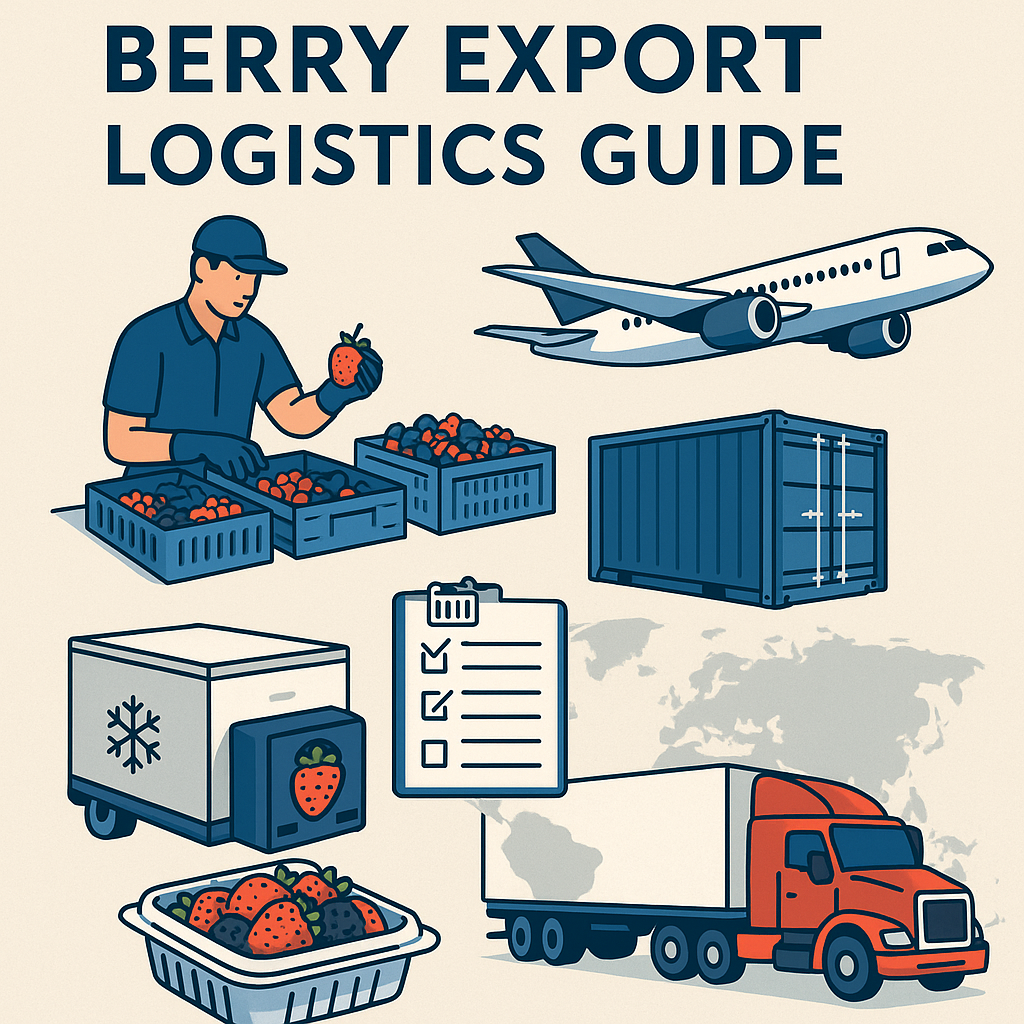How to Start Exporting Agricultural Products from Turkey: Step-by-Step Guide

Introduction
Turkey is a significant player in the global agricultural market, thanks to its diverse climate, fertile lands, and rich farming traditions. If you are looking to expand your business internationally and start exporting agricultural products from Turkey, this guide provides a clear, step-by-step pathway to help you succeed in global markets. Exporting can open new revenue streams, diversify your customer base, and increase your brand’s visibility worldwide.
Additionally, Turkish Agro Export website offers the opportunity to purchase export-ready agricultural products online and/or receive professional consultancy services to support your export journey, making the process even more accessible and efficient.
Step 1: Understand the Agricultural Export Market
Before jumping into export activities, you must thoroughly research the international demand for Turkish agricultural products. Key products like dried fruits, nuts, fresh vegetables, grains, and potatoes have strong markets globally.
-
Analyze target countries' demand and consumption patterns.
-
Investigate competitors and market pricing.
-
Identify trade barriers and import regulations of target countries.
Useful resources:
-
Turkish Exporters Assembly (TİM)
-
Ministry of Agriculture and Forestry (Turkey)
-
International trade databases such as ITC Trade Map
Step 2: Register Your Business and Obtain Necessary Licenses
To export legally, your company must be properly registered and authorized to export.
-
Register your business with the Turkish Trade Registry.
-
Obtain an exporter registration certificate from the Ministry of Trade.
-
If exporting food or agricultural products, acquire relevant health and phytosanitary certificates.
-
Get your products certified for quality and compliance with international standards (e.g., GLOBALG.A.P., ISO).
Step 3: Product Preparation and Quality Control
Quality is crucial for international buyers. Prepare your agricultural products to meet the highest standards.
-
Implement Good Agricultural Practices (GAP).
-
Ensure proper harvesting, cleaning, sorting, and packaging.
-
Use export-standard packaging that protects the product during transit.
-
Label your products accurately with country of origin, ingredients, and certifications.
Step 4: Understand Export Documentation
Exporting requires specific documentation to clear customs and fulfill legal requirements.
Essential documents include:
-
Commercial Invoice
-
Packing List
-
Bill of Lading or Airway Bill
-
Certificate of Origin
-
Health and Phytosanitary Certificates
-
Export Declaration
Make sure all documents comply with the importing country’s requirements.
Step 5: Find and Connect with International Buyers
Building reliable buyer relationships is critical.
-
Attend international trade fairs and exhibitions.
-
Use online B2B platforms (Alibaba, Global Sources, TurkishExporter.net).
-
Partner with export agents or distributors.
-
Utilize Turkish government export promotion programs.
Step 6: Choose the Right Shipping and Logistics Method
Decide how you will transport your goods efficiently and cost-effectively.
-
Select appropriate shipping methods (sea freight, air freight, road transport).
-
Consider lead times, perishability, and costs.
-
Work with experienced freight forwarders.
-
Ensure cold chain logistics if shipping perishable items.
Step 7: Understand and Comply with Import Regulations
Each country has specific import rules.
-
Check tariffs, quotas, and bans.
-
Verify packaging, labeling, and product safety standards.
-
Prepare for inspections and certifications at customs.
Step 8: Calculate Costs and Pricing
Accurate pricing is key to competitiveness.
-
Account for production costs, packaging, transport, insurance, customs duties, and taxes.
-
Include profit margin and currency fluctuations.
-
Consider payment terms (advance, letter of credit, open account).
Step 9: Manage Payments and Risks
Ensure secure payment methods to avoid losses.
-
Use letters of credit or documentary collections.
-
Get trade credit insurance.
-
Establish clear contracts with buyers covering delivery terms and dispute resolution.
Step 10: Market Your Products Internationally
Increase your brand’s visibility globally.
-
Develop multilingual websites and catalogs.
-
Use digital marketing and social media targeting export markets.
-
Build trust through certifications and testimonials.
-
Participate in global trade platforms and buyer-seller meetings.
Bonus: Purchase Export-Ready Products and Get Professional Consultancy
To streamline your export process, Turkish Agro Export platform allows exporters and buyers to:
-
Purchase export-ready agricultural products online directly through the site, ensuring quality and timely delivery.
-
Access expert consultancy services for export documentation, market entry strategies, compliance, and logistics support.
This integrated approach helps new and experienced exporters reduce barriers and accelerate their export success.
Conclusion
Starting to export agricultural products from Turkey requires careful planning, compliance with regulations, and building strong international relationships. By following this step-by-step guide and leveraging resources like Turkish Agro Export’s online platform and consultancy services, exporters can confidently navigate the complex export landscape, maximize profitability, and successfully position Turkish agricultural products on the world stage.
Ready to Export?
If you are preparing to export or want professional support in certifications, documentation, or market entry strategies, consider consulting with Turkish trade experts or using platforms like Turkish Agro Export to access products and services tailored for your export needs.
Tel: +90 532 326 03 80
Email: info@turkishagro.com
Recent Posts
How to Start Exporting Agricultural Products from Turkey: Step-by-Step Guide
Tarım Ürünlerinde Uluslararası Alıcılar Nasıl Bulunur ve Bağlantı Kurulur?
Berry Export Logistics Guide: Global Perspective on Efficient Berry Exportation
Traverten Mermer Export Guide – Turkish Travertine for Global Buyers
Technical Reasons Behind the Exceptional Quality of Turkish Agria Potatoes for Export
Exporter Zone
ExporterZone – Global Exporters Marketplace for B2B Trade




